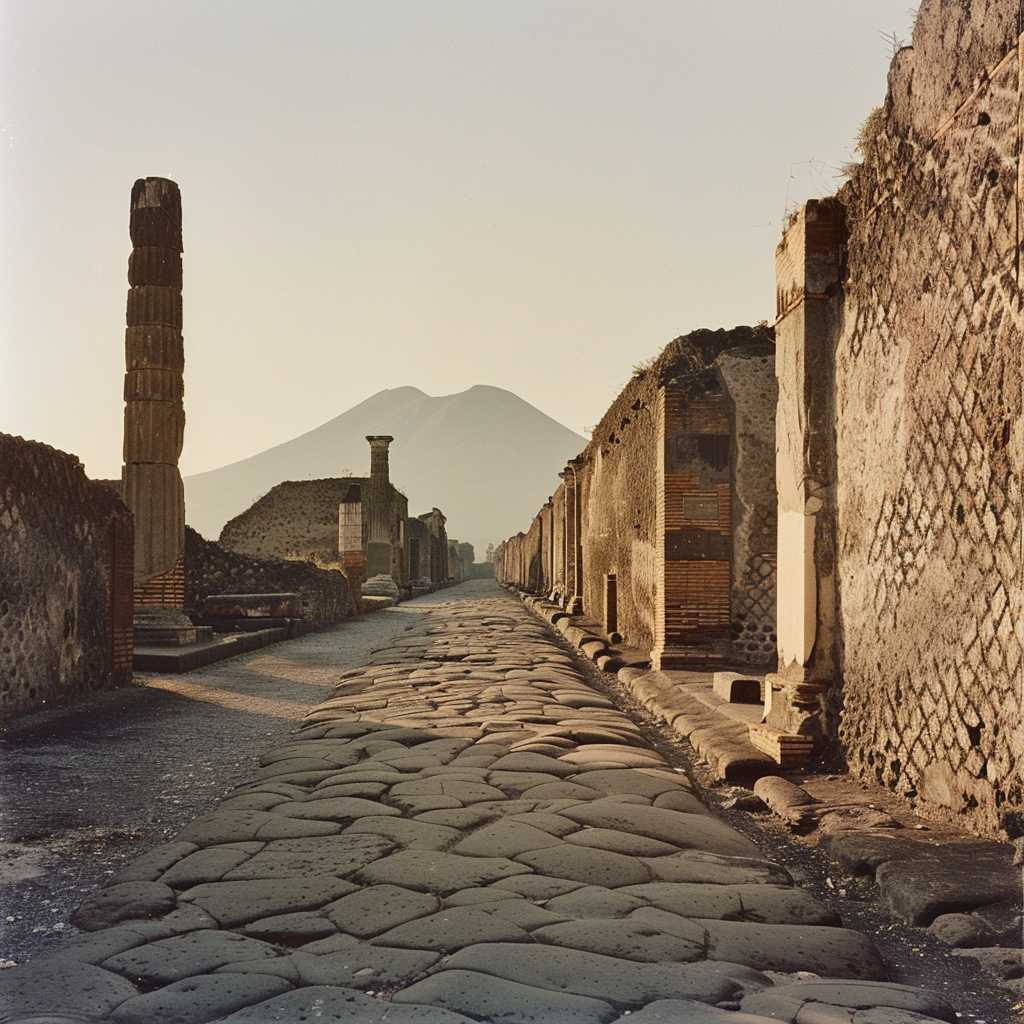The Enduring Legacy of Pompeii: A Journey into the Past
Pompeii, an ancient Roman city near modern Naples in the Campania region of Italy, remains one of the most explored archaeological sites to this day. Its story is marked by its abrupt burial in ash and pumice during the catastrophic eruption of Mount Vesuvius in 79 A.D., a disaster that sealed and froze it in time. This article endeavors to explore Pompeii’s history, its cultural significance, and the lessons it continues to teach modern societies.
Exploring Historical Pompeii
Pompeii was a thriving commercial center situated in close proximity to major sea routes and land-based crossroads. Its location provided it with economic wealth apparent in the city’s complex infrastructure, grandiose buildings, lavish villas, and cultural vibrancy. The devastating volcanic eruption caught its residents unprepared, encasing them along with their city under several feet of ash and lethal volcanic debris. This sudden obstruction left evidence of first-century Roman life literally set in stone.
Rediscovery and Archaeological Revelations
The site of Pompeii remained largely untouched until rediscovery by archaeologists in the 18th century who unearthed a marvel frozen in time—complete buildings, frescoes, mosaics, and artifacts laying as they did when the eruption occurred. What emerged was a snapshot of Roman life, yielding insights into social customs, art, economy, and urban design exceptionally preserved over millennia by the same tragedy that destroyed it.
Understanding Daily Life in Ancient Rome Through Pompeii
One of the most fascinating insights from Pompeii is the glimpse it provides into everyday Roman living. From gladiators’ barracks and amphitheaters to public baths and forums, cultural parallels were drawn between ancient lifestyles and those of today. With detailed household objects revealing domestic routines and social frameworks from stylized frescoes to street graffiti canvassing political opinions, Pompeii serves as a comprehensive historical archive on domestic life.
The Impact on Modern Archaeology and Volcanology
Pompeii’s excavation significantly influenced not only historical understanding but also the fields of archaeology and volcanology. The methods developed for the excavation and preservation of this site guided standards in field work procedures. Volcanologists glean considerable data on pyroclastic flows and long-term effects of volcanic events from Vesuvius’s eruption pattern as manifest in Pompeii’s layers.
Modern Cultural Influence and Tourism
Today, Pompeii appeals to millions of tourists intrigued by its tale of natural disaster and intrigued by its rich cultural artifacts. Its influence permeates popular culture with theatrical productions, films, literature, and art referencing or inspired by both the event’s drama or the site’s detailed remnants influencing present-day aesthetics.
Preservation Challenges and Advocacy for Heritage Sites
Maintaining Pompeii poses significant challenges against pressures of environmental conditions, modern urbanization, and global tourism impacts. Yet enshrined as a UNESCO World Heritage site, ongoing efforts towards its preservation are vital not only for current visitors but for future scholarly endeavors that continue to unlock Pompeian secrets—underscoring commitments towards protecting world cultural heritage.
Conclusion: Why Pompeii Still Matters
Pompeii continues to be not just an arresting monumental archive of an abrupt historical event but also a lesson-bearing exhibit showcasing what once was flourishing—an entire living ecology wiped out overnight. Amidst ruins lie both silent admonitions against forgetfulness as well as testaments to resilience as archaeological efforts provide protective stewardship linking past societies with present interests.
Notes
Image Description: A softly lit photograph illustrating partial viewpoint capturing Pompeii’s preserved ruins—crumbling stone walls aligning former streets punctuated with columns beneath a clear sky; with Mount Vesuvius looming imposingly in the background – a silent sentinel over its once-bustling city frozen below.
